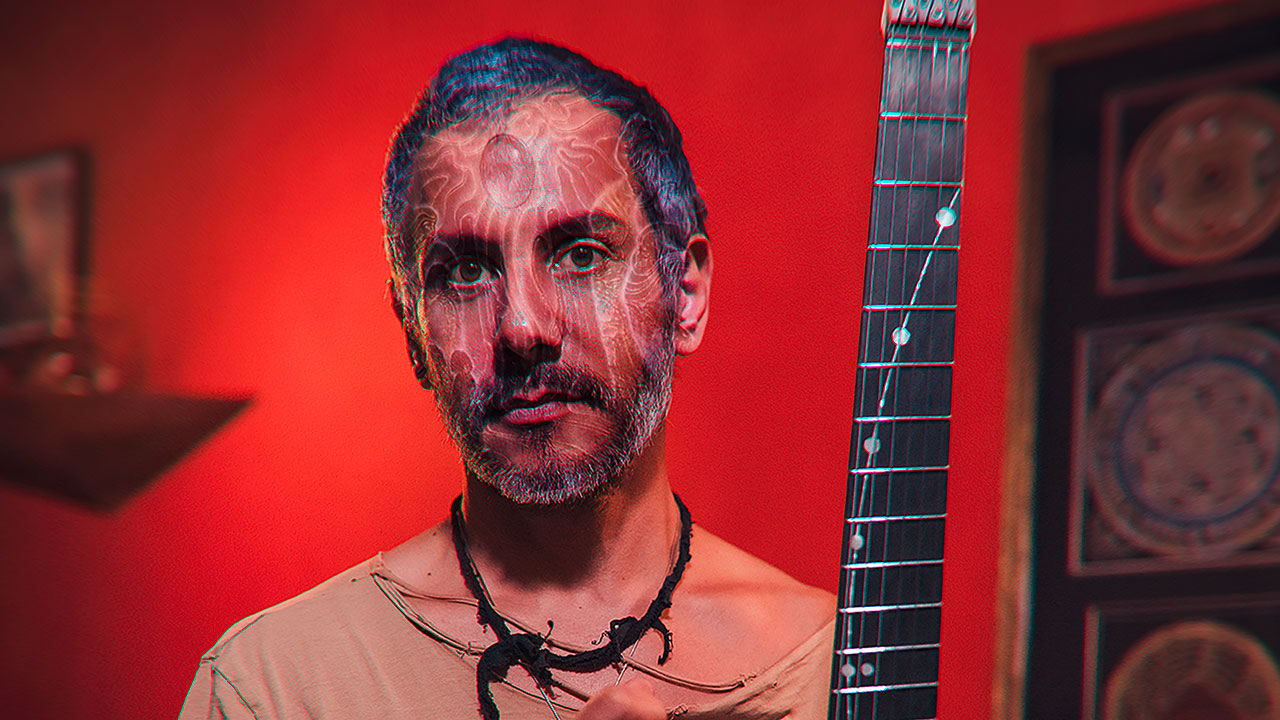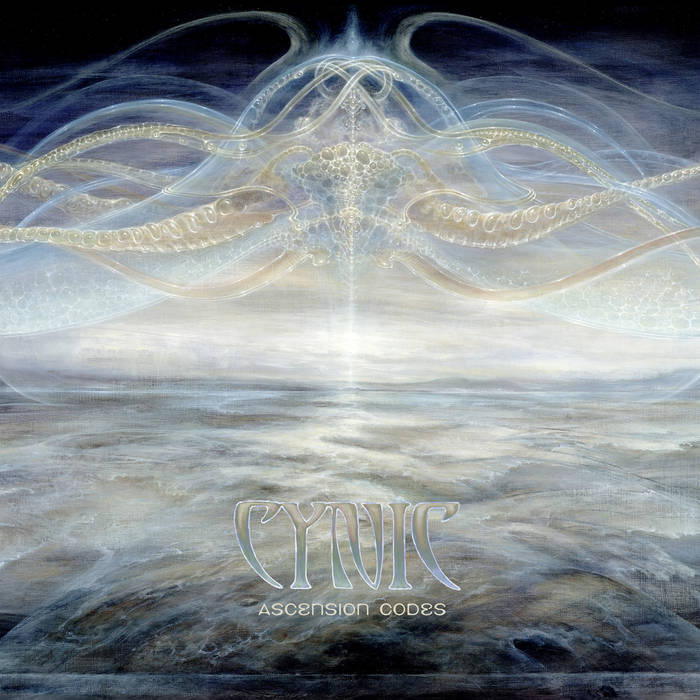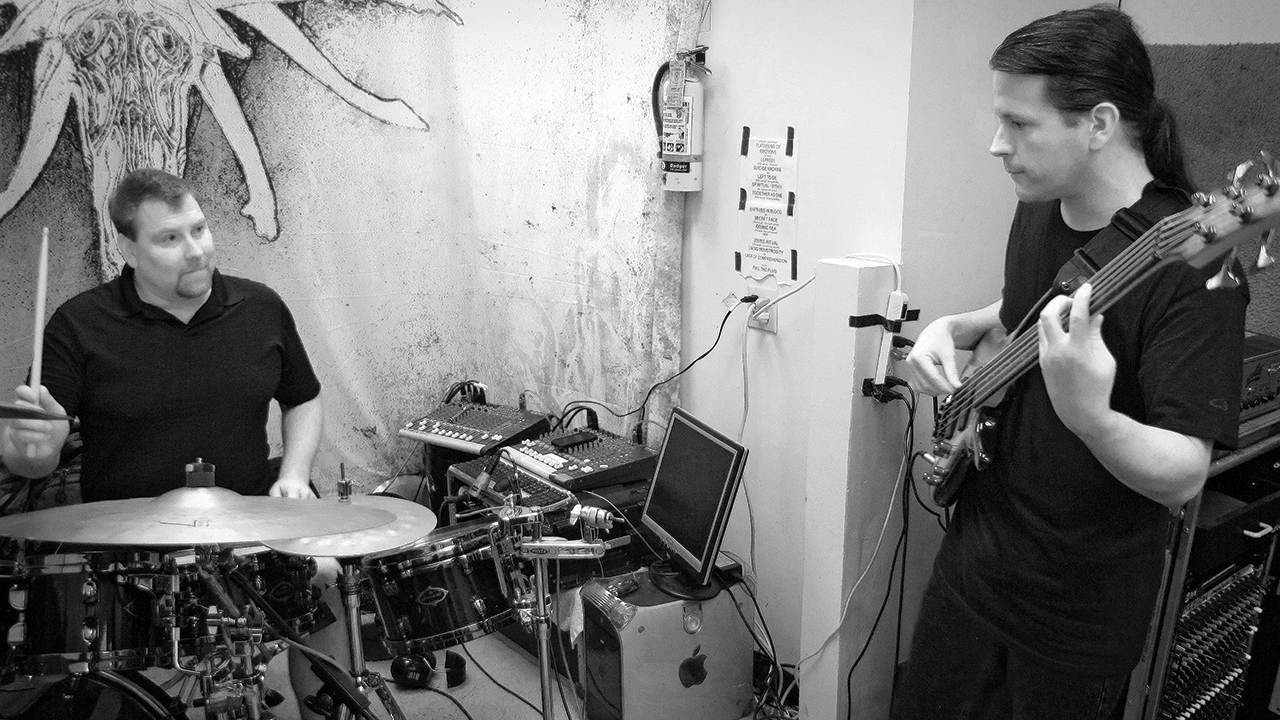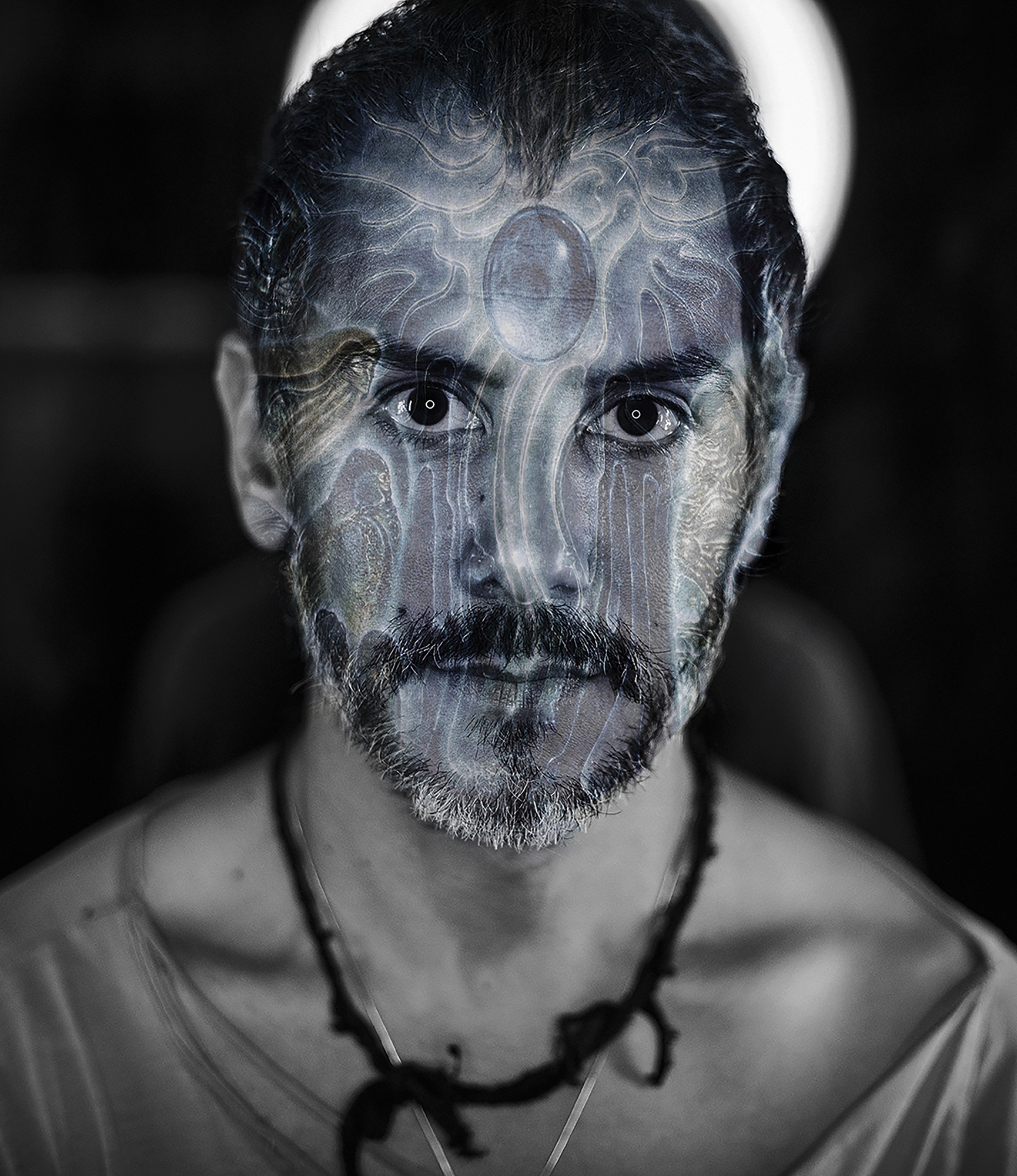How Cynic's Ascension Codes was a triumph born of tragedy
After a tumultuous period when two core members tragically died, remaining co-founder Paul Masvidal re-grouped, and re-emerged with the fourth Cynic album.

The anticipation can be excruciating, but Cynic albums have always proved to be eminently worth the wait. Forged amid the saddest of circumstances, and yet one of the most uplifting records of 2021, latest album Ascension Codes is only the Americans’ fourth full-length in three decades. It arrives after the tragic loss of former drummer Sean Reinert and long-time bassist Sean Malone, both of whom passed away in 2020, with co-founder, guitarist and vocalist Paul Masvidal the band’s sole remaining original member and guardian of one of progressive music’s most unique sounds. As the California-based virtuoso tells Prog, Cynic records were always destined to be a rare commodity.
“It’s funny. Cynic was rooted in this idea that we would always put the music before anything, and never let the business rule our decision-making process,” says Masvidal. “But look what that led to, an album every seven years! [Laughs] But we were so stubborn as children, just committed to being great musicians and giving ourselves to the work, really straddling that line. There was probably also a component that had to do with our own terror of the business, and feeling rebellion against it. Somehow it stuck over the years.”

The abrupt departure of Sean Reinert from Cynic in 2015 looked a particularly brutal breaking-down of relations between life-long friends. The band had originally formed in Florida, as teenagers and music students, and Masvidal and Reinert’s musical relationship had always been fundamental to everything they did. Losing such a close friend and creative ally could hardly fail to have a powerful effect on Cynic. But despite the fraught situation, and barely a year on from the release of Kindly Bent To Free Us, Paul Masvidal found himself experiencing a rush of creative momentum, and launched straight into writing material for the next Cynic album. While Reinert’s exit had pulled the rug from underneath the frontman’s feet, music that would eventually turn up on Ascension Codes was starting to appear, in spite of his band’s vulnerable state.
“Yeah, I don’t want to go down too far into that situation with Sean and I,” Masvidal says, “but I had my own gentle way of trying to part with him before he parted with me publicly. I was trying to do it lovingly, but it went in a different direction, which was a surprise, and suddenly it was chaos. But the starting point for the record was back then. We’d finished Kindly… and I was already demoing new material, I remember saying to the guys that the idea was to come home from touring and immediately jump into the next batch of music. So a handful of the songs on this record were demos back then. They’ve been gutted and reworked and I have a whole new world around them now, but they definitely existed back then.”With new ideas blooming, Masvidal kept plugging away at material for a proposed fourth album, with bassist Sean Malone and, from 2017, a new drummer, Matt Lynch, both firmly involved in the creative process. Unfortunately, events would once again conspire against Cynic, plunging the notion of the band’s future into a maelstrom of uncertainty.
“We released a single [Humanoid] in 2018 and we were ready to hit a momentum period and go back into the new record, but then Sean’s mother wasn’t well and he had to leave his whole career as professor and all his academic stuff to go back to Florida to care for her. That turned into a few years, really, so that’s why I made my solo acoustic records [Mythical, Human and Vessel], because I needed something to do. Then finally, Sean Malone moves to LA and we got back to work on it, but then it’s 2020. First, Reinert died in January and then Malone went missing [he later died by suicide]. So there has been a series of these unpredictable things that just derailed the course of the record. But it’s just like Focus. When we made that, a hurricane destroyed our rehearsal room.”

Despite its turbulent gestation, Ascension Codes is not an album weighed down by thoughts of grief. Instead, from its title upwards, the fourth Cynic album is awash with thoughts of freedom, renewal and transcendental grace, not to mention 50 minutes of glorious, impossible-to-define progressive heaviness. Masvidal explains that while new songs like The Winged Ones and Mythical Serpents are not directly addressing recent events, the album’s concept digs deep into both personal and abstract themes.
“There is a connection to the guys, indirectly but not literally,” he notes. “It’s bigger than that, a broader idea. The friends I’ve lost were such mirrors for me my whole life, and we really forged our identities together as children, especially Reinert and I. So losing them, you start to question who you are. So this album is a journey inward. You could say it’s comparable to a hero’s journey, like a Joseph Campbell [author of The Hero With A Thousand Faces, 1949] kind of thing, but with a twist. It’s extremely personal, but at also universal. I think those things go hand-in-hand.”
Sign up below to get the latest from Prog, plus exclusive special offers, direct to your inbox!
While the angular, post-rockisms of Kindly Bent To Free Us divided opinion among Cynic admirers, Ascension Codes seems guaranteed to hit the spot for anyone who has ever loved this band. It would be reductive to suggest that the new material harks back to the complex and artful fusion metal of Focus, but it’s undeniable that this is the heaviest record Cynic have made since those early days, with a few trace elements of the band’s death metal past woven into the sound.
“Oh yeah, for sure,” says Masvidal. “This one is probably the closest to Focus, especially in the guitar work. It’s the most dense guitar record Cynic’s ever made. There’s something about it being like coming full circle… we went back home, but in a revised way. We’ve always been in that progressive metal spot to a degree. This has a lot more distortion and drive and heaviness. Cynic was always sui generis, you know? We are a band that pulls from many sources and doesn’t necessarily have one core reference point. Our choices and interests are eclectic, and they’re all going into this cauldron, and that becomes the sound.”

Playing alongside Masvidal on Ascension Codes are drummer Matt Lynch, who made his Cynic debut on that 2018 single Humanoid, and keyboardist Dave Mackay. The prospect of replacing such revered musicians as Reinert and Malone would probably reduce most players to gibbering, panicked heaps, but both men deliver extraordinary performances, stamping their authority on the new material and honouring Cynic’s exceptional body of work. Masvidal admits that he never expected to enjoy such great chemistry with anyone again, and sings his new colleagues’ praises.
“Matt’s an animal, man. He’s one of those drummers, when I first started to hear his original ideas for this record, a lot of it went over my head. I thought, ‘What are you doing?’, because he was so different from Reinert. But over time, when I listened and I started to catch on, I realised he’s the same level of monster that Reinert was. He has a real voice. You can just listen to the drums on the record and that’s a complete experience.”
As for Dave Mackay, Masvidal explains that they were introduced by Plini, when the Australian prog metal prodigy supported Cynic in Japan. On Ascension Codes, what would previously have been wildly intricate bass guitar parts are now Mackay’s wildly intricate synthesiser parts.
“An interesting synchronicity is that I brought Dave in to play some gigs with me,” Masvidal recalls, “and when Malone first moved to LA to start working on the record with me, we did a couple of gigs. One of the gigs, which would be Malone’s very last live performance, was at a venue here in Hollywood. Mackay and Malone were onstage together with me for the last song, so they shared the stage.
“I couldn’t replace Malone. So I turned a corner, and I said to [Ascension Codes co-producer and mixer] Warren Riker, ‘How about synth? How about a keyboardist?’. A lot of moments on the record sound like amazing bass playing. You don’t know what it is. So again, Dave came in with a voice, and he flows in and out of the arrangements in an extremely musical way.”
It is perhaps a symptom of such complex and challenging music that Cynic albums seem always to have been difficult to make, the youthful, adrenaline-fuelled first flush of Focus aside. But despite the circuitous and obstacle-strewn route that Masvidal’s band have taken, he still sounds driven and inspired to uphold the principles that he laid down with his friends all those years ago.
“I come back to Cynic when I feel inspired, and when I have something to say,” he says. “We can’t just pump this stuff out, and so each record becomes more like a masterwork for me. I always think of Ravel, when compared to other composers. Everything that he did was repertoire. Everything mattered. He wasn’t very prolific but everything he did was really good. I’ve tried to stay in that mindset, that everything has to be really good. But what happens when you work that way is that every record takes everything out of you. You pay a price, emotionally, physically and spiritually, to make art.”

A dazzling, uplifting triumph wrenched from the jaws of despair and dismay, Ascension Codes is very much the equal of Cynic’s previous creative highs. Meanwhile, Masvidal sounds genuinely excited about the prospect of working with both Lynch and Mackay again. He remains undecided about whether the band will ever hit the road in earnest again, but when it comes to making more Cynic music, his future manifests as a tantalising blank canvas, ripe for the painting.
“I don’t know what the future holds, that’s the most honest answer. Cynic is an entity now, it’s beyond the personalities and the life of its members. For me, it expresses something bigger than an individual. But I’m just staying in process and seeing where things take me. You never know where the creative process is going to land. You just keep showing up.”
This article originally appeared in issue 127 of Prog Magazine.

Dom Lawson has been writing for Metal Hammer and Prog for over 14 years and is extremely fond of heavy metal, progressive rock, coffee and snooker. He also contributes to The Guardian, Classic Rock, Bravewords and Blabbermouth and has previously written for Kerrang! magazine in the mid-2000s.
